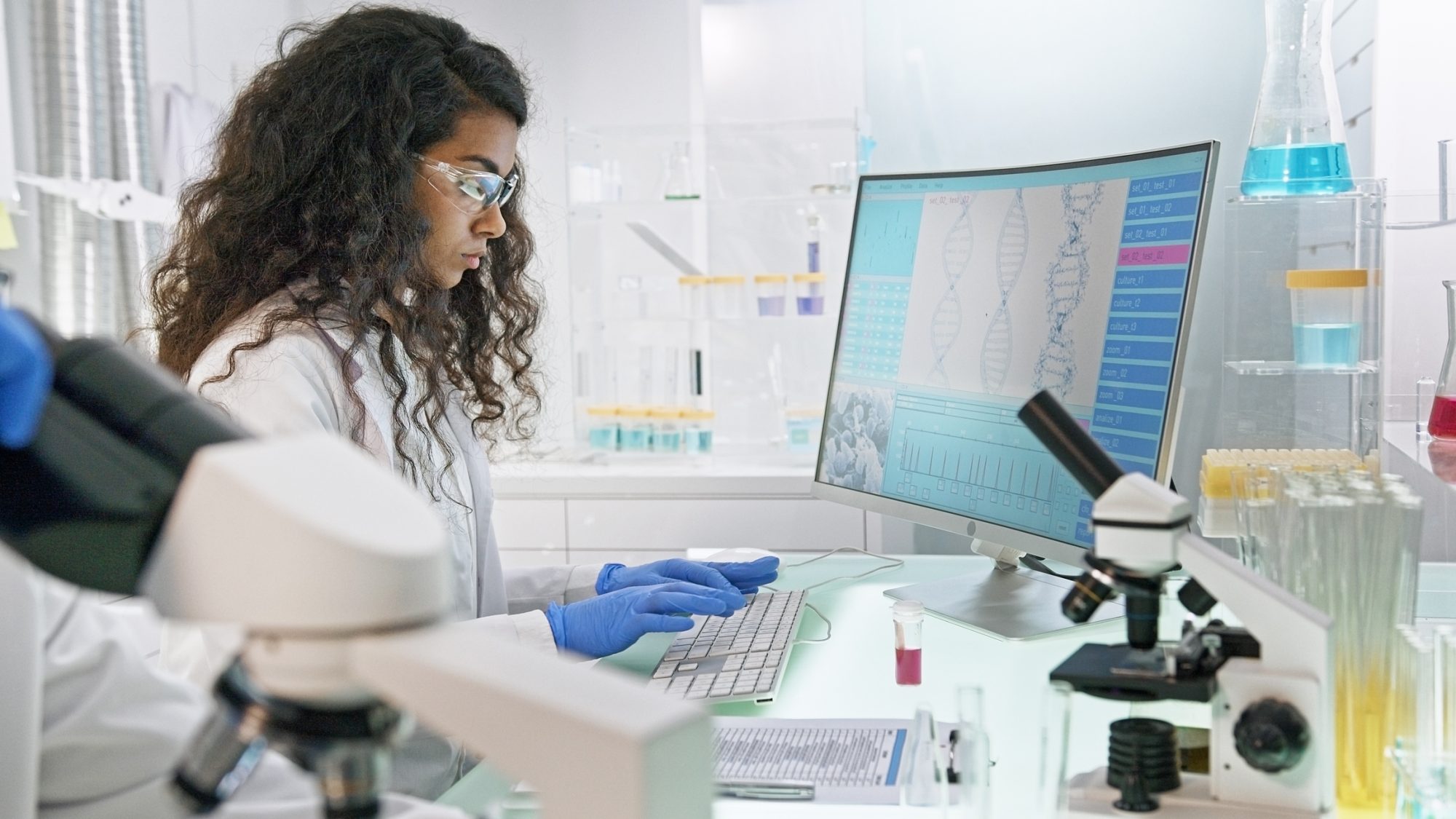The future of healthcare lies in the seamless integration of AI to empower professionals and revolutionise the way we approach healthcare delivery
The transformative nature of AI is not to be underestimated. Having already made its mark in cybersecurity, retail and finance, to name a few, one field that stands on the precipice of significant digital innovation opportunities is AI healthcare.
With its unparalleled capacity to leverage extensive, multi-modal datasets and its inherent strengths in automation, efficiency and personalisation, AI is poised to drive a wave of innovation throughout the industry.
The convergence of AI healthcare represents a powerful fusion of two pivotal economic sectors, promising widespread effects on patient care and outcomes.
The new role of AI healthcare in 2023
While early AI applications in healthcare focused on drug discovery, clinical operations, diagnostics and devices, recent developments have thrust its truly groundbreaking potential into the spotlight. The surge of investments in healthtech and the boom of generative AI have underscored the promise of transformation in this domain.
In fact, healthtech investments in the US, EU and UK reached a record-breaking $23 billion in the first three quarters of 2022, despite global economic volatility. The digital health sector alone attracted a staggering $29.1 billion in investment during the same year.
healthtech investments in the US, EU and UK reached a record-breaking $23 billion in the first three quarters of 2022
And in just the last few weeks, it was revealed that scientists have discovered a new ‘superbug-killing antibiotic’ using AI. After being trained, the AI was able to create a shortlist from thousands of compounds in just an hour and a half.
At Bayezian we have been working with a business partner to improve their early drug discovery phase. Using cheminformatics and a supervised machine learning model, we have developed a pipeline that predicts the bioactivity of small molecules that are returned from a target protein query. This helps to pre-empt whether a new treatment will be effective.
However, as with any implementation of AI, healthcare providers must proactively address concerns and risks. Given the high stakes and potential severity of consequences, optimising outcomes and ensuring patient safety requires diligent efforts to minimise errors and biases. By adopting a vigilant approach to AI system validation and monitoring, healthcare providers can minimise risks and uphold patient care and well-being.
A vigilant approach to AI system validation and monitoring
Embracing AI-enabled technologies holds immense opportunity for healthcare providers. By integrating AI, they can elevate patient outcomes, streamline workflows, and enable data-driven decision-making. The future of healthcare lies in the seamless integration of AI to empower professionals and revolutionise the way we approach healthcare delivery.
But what does this approach look like? Here are four insights into how technology and data science is set to shape the future of AI healthcare.

-
AI will always need human judgement – it won’t make medical professionals obsolete
AI technology can automate certain tasks, such as image analysis or administrative duties, but it cannot replace the diverse skills and knowledge that healthcare professionals possess. Human judgement, patient interaction, and complex decision-making are irreplaceable aspects of healthcare.
This is especially apparent when it comes to ethical and moral decision-making. AI lacks inherent ethics and morality. Decisions involving complex ethical considerations, such as end-of-life care, allocation of resources, or triaging patients, require human judgement, empathy, and a deep understanding of individual values and beliefs that AI currently cannot provide.
2. Building trust and patient care and acceptance is key
Acceptance and trust in AI technologies among patients and healthcare providers are important for successful implementation. Some individuals may be sceptical or hesitant to rely solely on AI for their healthcare due to concerns about privacy, accuracy and the potential for errors. Building trust requires transparent communication, clear explanations of AI’s limitations, and addressing concerns effectively.
3. Fragmented data currently hinders AI’s potential – but we can change that
AI algorithms require access to high-quality, diverse and well-structured data to perform effectively. However, healthcare data is often fragmented, stored in different systems, and lacks interoperability. Integrating and standardising data from various sources remains a challenge, hindering the full potential of AI healthcare. However, leveraging AI can facilitate automated data processing and analysis, enabling faster and more comprehensive insights.
4. Regulation will enhance – not impede – progress in AI
Government regulations play a crucial role in ensuring the safety and efficacy of AI-driven drug discovery processes. Regulatory bodies establish standards and guidelines to assess the performance and reliability of AI algorithms used in drug discovery.
These regulations help ensure that AI technologies are properly validated, reducing the risks associated with inaccurate predictions or false positives/negatives in drug development.
We’re at the threshold of producing groundbreaking discoveries and transforming services in healthcare. Investment in healthtech is surging and real-world use cases are providing evidence of AI’s potential to revolutionise the industry – and our lives.
Yet for its impact to be fully realised, AI healthcare providers must collaborate to garner trust and acceptance from employees and patients alike, while also implementing centralised systems to overcome the sector’s data fragmentation conundrum. Human judgement will remain integral throughout this transition.
Guided by industry-wide regulations and responsible development, the advancement of AI is set to spur on a healthcare revolution. A new dawn awaits for the future of healthcare.
This piece was written and provided by Ed Dixon, CEO of Bayezian.











